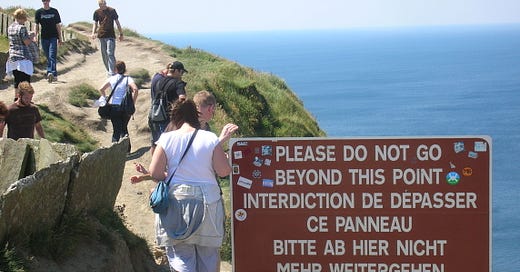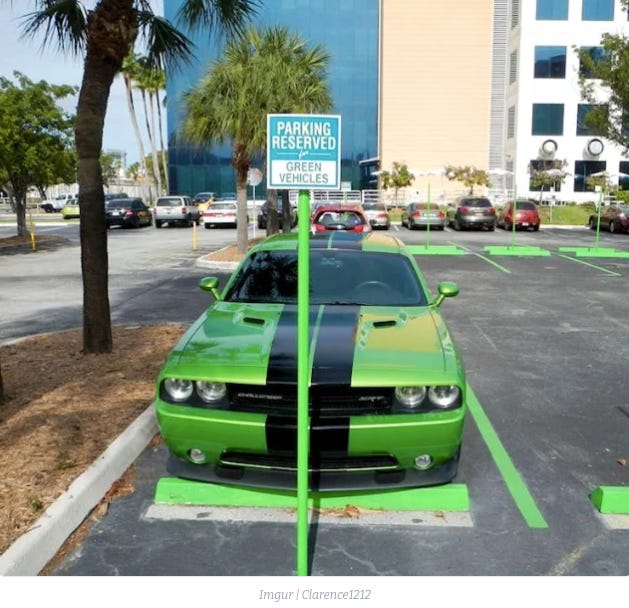If there is a single characteristic that distinguishes Americans from people of other countries it is our fierce fidelity to individualism. These boots are made for walking, and we’ll do it our way, thank you very much (hat tip Sinatras). We want what we want and, for the most part, believe we deserve to get it.
I don’t think there’s anything inherently wrong with any of that. I’ve been the strident citizen, the person who stood my ground in defense of what I felt was right. So, what is it about so much of today’s agitation that I find objectionable?
I wish I had answers. I don’t. But I do have a few ideas.
First, I think we’ve heightened individualism at the expense of community. We’ve lost not just the mechanisms to support each other—like neighborhoods, civic clubs, church families and extended families—but also the will. For decades, we’ve been warned that something or someone was on the verge of taking away our hard-earned freedoms. Apply yourself, they said. Hustle, they said. That’s how it’s done. Later, we learned we’d given too much of ourselves away. Set personal boundaries, they said. Practice self-care, they said. That’s how it’s done.
It’s me and me against the world, isolating and transactional. Where, in these models, are collaboration and community-building? Where is there opportunity for mutual progress? Where is the health of the whole?
I also think we’ve elevated the merits of moral outrage while suppressing the call for personal responsibility. It goes like this: Look at me! I am incensed. With these words, I’m signaling alignment with my in-group, folks who are equally upset. Therefore, I am virtuous.
The lady doth protest too much, methinks (hat tip, Shakespeare).
Contrary to what we might want to believe, science tells us that indignation on behalf of others is more self-serving than it is altruistic. By pinning blame on third-parties, we assuage our own guilt and shore up our identity as good people. It’s worth noting that social media algorithms drive the proliferation of righteous indignation, because they are designed to reward posts with such content. Suffice to say, surprise! It’s still all about us.
This next thought dawned on me the other day and felt a bit like being smacked in the head with a protest sign: I think some of our perceived best efforts at speaking up for worthy causes are actually making matters worse. Here’s a recent experience to help illustrate.
The farmers market had just ended. Volunteers and vendors were bustling about, breaking down tents and tables. Someone moved an orange traffic cone a bit prematurely, tempting new arrivals to vie for recently vacated parking spaces. A car approached the barrier just as someone moved to put the cone back in place. The driver was met with a diplomatic but firm no.
“You can’t come through here. You’ll have to go around the other way,” he was told.
Never mind that the alternate route was no more than three car lengths to the left, the announcement set off a strong reaction. Though the car windows were shut, and I stood some distance away, the anger was evident. Mouth wide, arms flailing, fingers pointing, engine revving. The man throttled the car forward, compelling folks in close proximity to step back and opening a corridor for him to blast through. A fellow across from me flexed, ready to rumble. By now, the car’s windows were down and choice words flew back and forth.
For a few seconds, I thought about engaging. I had no plan of attack and no means of defending myself should things turn ugly, but in that moment, my cowboy boots and ‘how dare he’ attitude were enough.
Fortunately for all of us, the driver sped off before anyone could act on more impactful impulses, but we were all gobsmacked by the injustice that had occurred. Someone violated what felt like a reasonable request, and we were powerless to stop him.
At a basic level, there were two forces in play here—them what makes the rules and them what breaks ‘em. By ignoring the appeal to take a different route, the driver exercised control. Rule makers hold the power. Rule breakers get it back, fleetingly or not, through acts of rebellion.
Generally, rules make our lives easier and we obey them because, generally, they feel justified. Despite recurrent socio-political pleas to burn it all down, humans don’t actually thrive in chaos. If the law instructs us to drive on a particular side of the road, there is strong motivation to comply and significant risk in doing otherwise. Still, faced with policies we deem unfair or the apparent inability to achieve our goals, we balk.
And let’s be honest. We’ve all had our moments. Exceeding the speed limit. Jaywalking. Parking in a fire lane. Underage drinking. Tax evasion—not the big kind but the kind that looks like not declaring your tips while paying your way through school. Sneaking in. Sneaking out. Sometimes acts of defiance are just our way of sticking it to the man, reasserting our power, and emphasizing that we can’t be told what to do.
For a moment, let’s pretend that the farmers-market-crasher represents our current out-group, people whose views don’t align with our own. And let’s say the orange traffic cone and the directive to take a different route is our moral outrage. What happens when all that converges in the random parking lots of life?
Bolstered by American individualism and a fear of lost freedoms, our indignation makes the out-group more determined than ever to get where they’re going. When they succeed, we’re left feeling powerless and that a grave injustice has taken place.
Are we supposed to step aside? Let renegades run rampant while we stand back and suck in their exhaust? Well, that’s one option, but there are others that feel more balanced.
We can apply ourselves, yes, and practice self-care. But we can also throttle back the competition. Assume good intentions, help others get ahead. Compromise and success are not mutually exclusive. We get what we give, and when we aim for common good, everyone benefits. More importantly, we cannot thrive when we refuse to see ourselves as part of a much larger whole. For better or worse, our actions are reciprocal.
We can seek out solutions as often as we find problems. If we fracture our femur, the last thing we want is a group of people standing around on two good legs lamenting the brokenness of ours. We need someone who will call the paramedic, someone who can stabilize the injury and get us closer to healing. We can’t do everything but we can do some things, starting with deliberate efforts to engage in problem-solving.
We can work on cultivating curiosity in place of judgement. Listen. Ask questions. Try a different approach. Be willing to be surprised and open ourselves up to possibilities. Sometimes, a shift in perspective is all that’s needed to bring about a better outcome.
For most of us, changing the approach to how we see and experience the world is new and therefore terrifying. What terrifies me more is what happens if we don’t.
~Elizabeth







As Benjamin Franklin said upon being asked as he left the Constitutional Convention in September 1787, "What kind of a government have you given us, sir?," "A republic, madame, if you can keep it." A "republic" is freely elected representative government for all citizens. There are two sides to the coin of Freedom...: Liberty and Responsibility. Yea for individualism, and yea for concern for community. Check the rage, and promote the balancing of reflection....
Boy, can I sign on to this thesis: "First, I think we’ve heightened individualism at the expense of community." I've seen that so much in the field I've been closest to, public education. I am all for advocating for our own children's needs (I certainly did when my kids were in school), but I think a lot of folks have completely lost sight of some of the aims of public education--namely, the needs of our public as a whole.
I can also sign on to your remedies. I think they work well especially when we apply them to our every day interactions (such as the one in the farmer's market), with regular people we are seeing in real time, face to face. I think most of us just want to get along, and we want to be good people. Where I struggle is with those who I might categorize as "not so regular"--those with more than usual power or other resources--who, I think, do not always have good intentions. Some of those kind of people clearly do not, and one of their tactics is to get the rest of us to turn on each other. I'm not sure of what to do about that, other than vote, be purposeful about where and how I spend my time and money, and work to not let them make me lose my humanity and regard for others. Oh, and limit the time I spend online and the places I go there!
Appreciate the chance to think about these things, and I appreciate your reasoned (and reasonable) take on all of this.